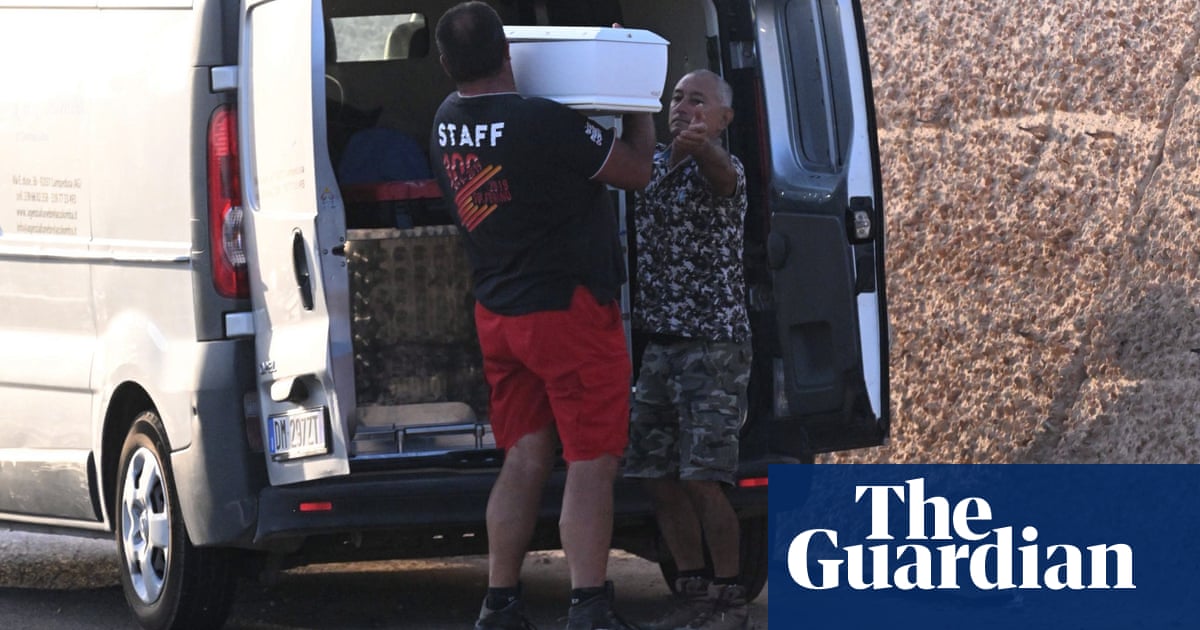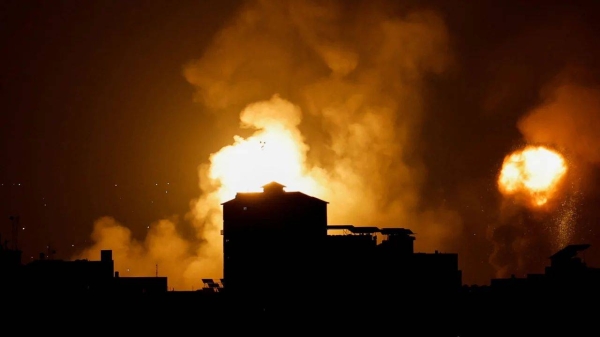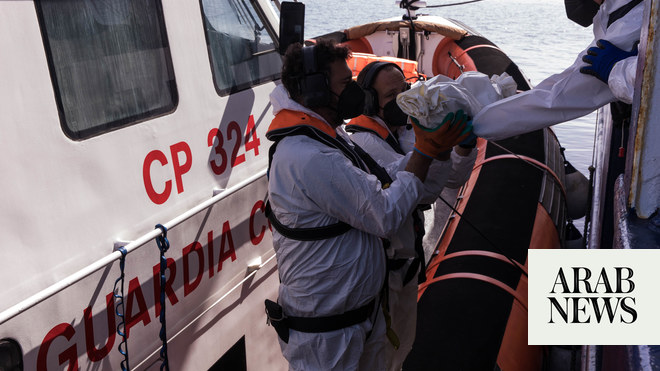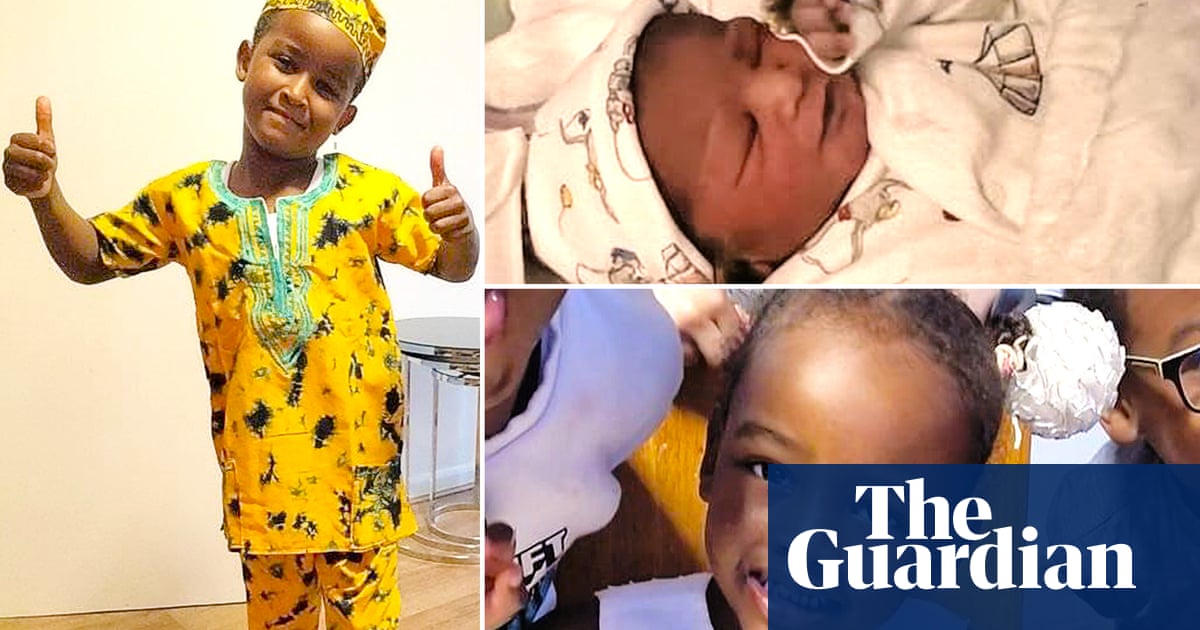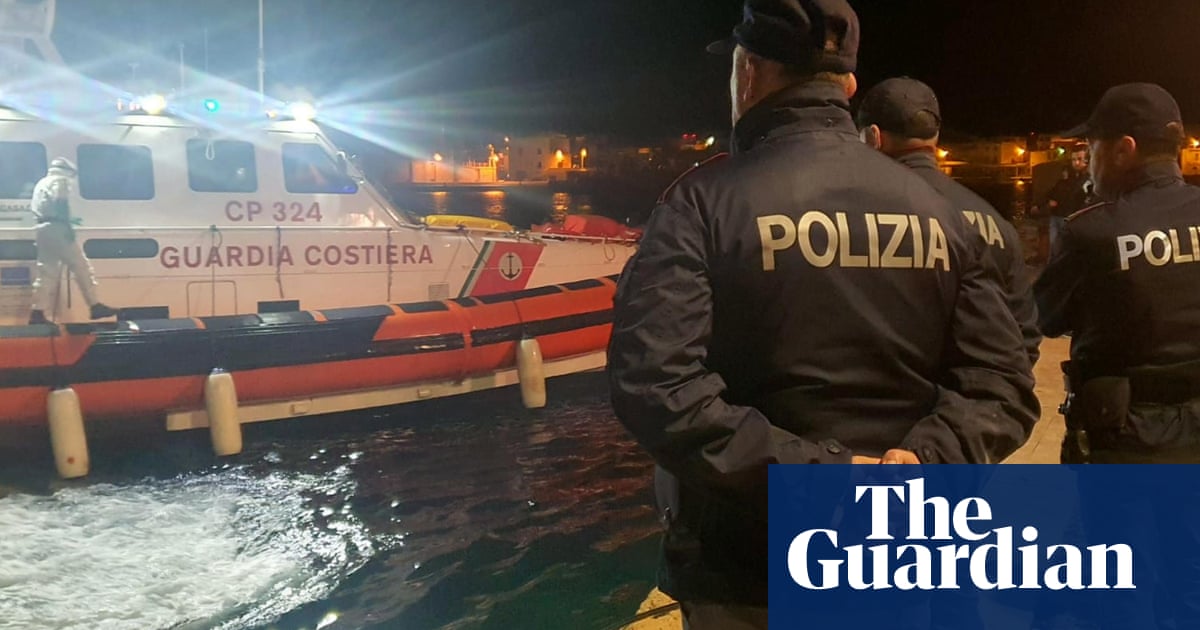
A baby was among nine people including his mother and a pregnant woman who died of cold and thirst on a boat carrying about 50 migrants across the central Mediterranean, Italian authorities have said.
Survivors who landed on the Italian island of Lampedusa after being rescued late on Thursday told investigators the four-month-old baby slipped out of the boat after his mother, who was holding him, collapsed and died from exposure.
The boat had left Sfax, south of Tunis, a few days earlier and soon after lost its way, survivors told magistrates.
A Tunisian fishing boat reported it to Maltese authorities and said there appeared to be dead bodies onboard, the investigators said, but there was no subsequent response.
After food and water supplies ran out, passengers began drinking seawater out of desperation, the survivors said.
The vessel was eventually reached by the Italian coastguard on Thursday evening, which found the bodies of eight people onboard. Survivors, including his father, then confirmed the death of the baby.
About 42 survivors were transferred to Lampedusa.
The NGO Alarm Phone, which runs an alert service for people in distress on the sea, said in a statement: “Yet again a maritime disaster in the central Mediterranean Sea, the logical outcome of Europe’s policies that limit rescue resources while fostering anti-migrant deterrence, no matter the costs. The costs in this case are an infant as well as at least eight adults who died in the most horrible of ways.”
The survivors, including 10 women and a child, are from Mali, Ivory Coast, Guinea, Cameroon, Burkina Faso and Niger. The nationality of the baby has not been disclosed.
Prosecutors in the Sicilian province of Agrigento, which includes Lampedusa, have launched an investigation into the incident.
Despite recent bad weather and stormy seas in the central Mediterranean, hundreds of people fleeing poverty and war leave Tunisia or Libya every day, risking their lives to reach Europe.
“Over the last days, the weather conditions at sea were terrible and still people tried to cross, showing the need of people to escape from Tunisia and Libya,” Alarm Phone said. “That several boats were missing was known to authorities for days.”
The Maltese coastguard and government has yet to respond to the Guardian’s request for comment.
The Council of Europe commissioner for human rights, Dunja Mijatović, on Thursday called on the Italian government to consider withdrawing or revising a recently introduced decree that it said could “hamper NGO search and rescue operations and, therefore, be at variance with Italy’s obligations under human rights and international law”.
The decree, introduced by Prime Minister Giorgia Meloni’s rightwing government, orders NGO rescue ships to request a port and sail to it “without delay” after a rescue, rather than remain at sea looking for other migrant boats in distress. Mijatović said it would force NGO boats “to ignore other distress calls in the area if they already have rescued persons onboard even when they still have capacity to carry out another rescue”.
The central Mediterranean is the world’s most lethal migration route. Since 2014 more than 20,000 people have died, according to the International Organization for Migration, with 17 deaths already this year.




